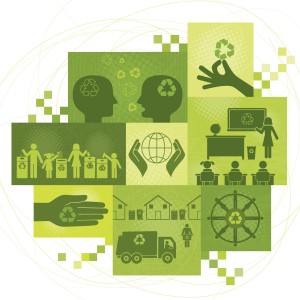Extended producer responsibility (EPR)—the practice of requiring the organization that produces a product or material to take responsibility for its end-of-life disposal—has sparked debate concerning “eco-fees,” a front-end charge for the disposal and recycling of products that take up space in landfills or are potentially harmful if they make their way into the waste stream.
Municipalities historically have borne the burden of proper recycling and disposal costs. Not surprisingly, these entities support EPR programs, which shift the financial responsibility from them ...
Read MoreAUG
 One of the goals of extended producer responsibility (EPR) is to provide funding, on the front end, for the disposal and recycling of products that are potentially harmful to the waste stream or may simply be a burden to handle. Those fees, commonly known as “eco-fees”, may then be passed down to the purchaser either by being embedded in the product’s price or as a separate visible line item at the ...
One of the goals of extended producer responsibility (EPR) is to provide funding, on the front end, for the disposal and recycling of products that are potentially harmful to the waste stream or may simply be a burden to handle. Those fees, commonly known as “eco-fees”, may then be passed down to the purchaser either by being embedded in the product’s price or as a separate visible line item at the ...